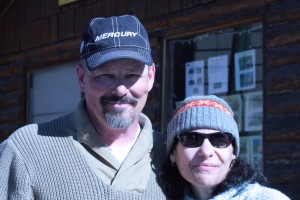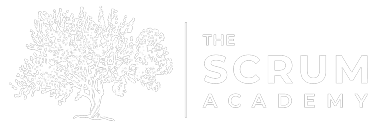Good Scrum Teams Just Needs to be Supported – Interview with Joe Hardell from Abbott
Want to hear a success story about how Scrum can be used outside of software? Then this article is for you! In this episode of our practitioner spotlight, we hear the story Joe Hardell, Group Leader of Learning & Job Mastery at Abbott Vascular, on how he is using Scrum to help improve the manufacture and quality of medical devices. This is important work and when you read Joe’s story, you can really see how Scrum is both impacting the people in the Team and the people who use these medical devices.
 It is not often that people from outside of software attend a Certified ScrumMaster course, yet somehow Joe found a recent class I was offering in San Diego, it matched his schedule and he signed up. Joe has spent over twenty years in his industry, mostly focused on manufacturing, and last year became involved in Business Excellence (which is often how people in regulated industries refer to organizational and process improvement). As a result of this new position, Joe moved from a role of focusing mainly on equipment to enabling people to do their job better. From my perspective, what makes this story so exciting is that Joe saw Scrum as a solution to both these needs.
It is not often that people from outside of software attend a Certified ScrumMaster course, yet somehow Joe found a recent class I was offering in San Diego, it matched his schedule and he signed up. Joe has spent over twenty years in his industry, mostly focused on manufacturing, and last year became involved in Business Excellence (which is often how people in regulated industries refer to organizational and process improvement). As a result of this new position, Joe moved from a role of focusing mainly on equipment to enabling people to do their job better. From my perspective, what makes this story so exciting is that Joe saw Scrum as a solution to both these needs.
- Tell us a little about what you do each day. I work for a very demanding small team of training specialists that travel the world developing training documentation for complex medical device manufacturing lines. We are in the knowledge transfer business. My role has largely evolved into staying out of their way and solving problems when asked to do so.
- Why is your work important? The work is important because learning to build many of our devices can, and often does, take many months. During this time the learner and trainer can become very frustrated. Imagine being new to a job and being unable to contribute any real value for months. We teach trainers how to use a fantastic methodology called Job Instruction (JI) to more effectively transfer knowledge. We also develop detailed training materials for them to use. If we do this well, lives are quite literally improved – and business results follow – so I think the work is pretty important – at least to the people it touches.
- What makes your work challenging for you personally? For me, I have spent nearly twenty years in the equipment support side of the business. This gave me a vey narrow view of the business. In more recent years, I was fortunate enough to have the opportunity to move into the operations side of things and then into my current Business Excellence role. The challenge for me personally has been the transition from understanding and solving equipment issues to working mainly with people. I am a problem solver. Over time, I have found this job often needs someone who can just listen to the Stakeholders and then allow the Team to solve the problem. It is often difficult for me to not always to provide the answer and instead trust that the team will get it right.
- What makes it hard for your team? For them, I think it is often difficult because they travel all the time. Many times, they travel for months on end. In this work, staying focused and maintaining a positive attitude can be a challenge. Although they manage quite well, I often worry that they will burn out on it.
- How did you find Scrum? Why did Scrum appeal to you? Scrum was introduced by a co-worker, Steve, who had been using Scrum in his role in another department. Steve then became a one-man band trying to interest people in using it. He came into our group and shared Scrum with us and I was almost instantly drawn to it. I am a project manager – trained in traditional methods – but I never liked managing projects because I always felt that my job was to just badger people into meeting a date instead of collaborating to accomplish the goal. Traditional project management sucks the life out of everything it comes into contact with and very often, after you give it all you have, the project fails or is cancelled anyway. I cannot stand it.
- Why did you think Scrum could help? Elea, the engineer on the team, had recently discovered Job Instruction (JI). We later got permission to run an extensive pilot at one of our facilities. For our Team, the stakes were high because we really wanted this JI pilot to succeed. Success would provide credibility and allow us to offer better JI to more folks in our business around the globe. I thought Scrum could help keep us on track without the need for weeks of writing charters and other nonsense (I thought this mostly because Elea said so). I also loved the idea of the team being able to run it themselves.
- How did you get started with Scrum? What sort of results did you see? To get started, Elea read about it and worked with Steve to gain a basic understanding of how Scrum worked. Then, she shared what she learned with the rest of us. We agreed to try it on the pilot and it almost instantly became apparent that it is terrific way to accomplish our objectives. The first week a Team member was done with their Sprint Task and just casually offered to help someone else during our Daily Scrum meeting. Before we knew it, we were accomplishing more than we planned and we were able to shift things around from Sprint-to-Sprint to meet changes in local business needs. The other almost instant benefit was that we could develop a set of documents, train a trainer, and complete training for a new learner all within a Sprint [Joe ran his pilot with one-week Sprints] so the business was suddenly realizing a real benefit DURING THE ACTUAL PROJECT! No need to wait for the pilot to end to see results – they were the natural outcome of each Sprint and the people we helped absolutely loved it! In the end we were able to provide more “product” than planned and all of it absolutely worked right out of the gate because of the team’s Definition of Done – done means it is usable for manufacturing.
- What has been your biggest success with using Scrum? For me personally, it has been watching the people on the Team grow into this new role and develop in ways I doubt they thought possible a year ago [May 2013]. At the start of this journey, most of the Team members were inexperienced with managing a project. They were all terrific trainers, but we always assigned a leader to run things. Last year, two of the team members challenged me to let them “run a project”. I did, they both used Scrum and were very successful. Today, I have absolutely no problem sending them anywhere. I am absolutely confident they will form their local teams and get the work done.
- What surprised you the most about doing Scrum? How easy it really is to get great results right away. That is not to say Scrum is easy – at least not if you do it right. It is just so effective that you see results really fast. It also surprised me to learn that this is actually how I think. I tried to manage projects using waterfall and stage gate approaches, but they just made my head hurt. When I have a project, I just want to get started on it and I want the Team to see the results of their efforts before they get disillusioned with the whole thing and feel frustrated. Scrum allows this to happen. I love seeing people fully engage in the work because of it. We all need to be able to measure our own success each day to stay fully engaged in our work. What better way to do so than to actually be able to hand the customer a fully functional product at the end of the Sprint and then see how it improves their lives and the business right away. I’d say that’s a great way to measure success and I want us to be able to do it as often as possible.
- What was your biggest challenge with using Scrum outside of software? This is a challenging question because it has worked so well for this Team. However, I would say the real challenge has been to avoid stepping on the Sprint. I have not been the best ScrumMaster. I constantly look for new applications for JI and often agree to more than the Team should take on. Also, none of us really understood the importance of the various roles and I would end up filling several. This I think has been the biggest challenge to the Team because no one tells me no when they really should. They are patient though and always find a way to get things done. It is hard to admit that I am the biggest challenge for the Team, but I think it’s been true thus far.
- Given that, what do you think is the secret ingredient for a successful Scrum Team? For the most part, a good Scrum Team just needs to be supported and left alone. Do that well and the Team will flourish. It was hard for me to internalize this, but ScrumMaster training really opened my eyes to this perspective.
- What do you see as the next hurdle you need to overcome with using Scrum? Getting better at the nuts-and-bolts of Scrum. ScrumMaster training made me very aware of just how much more we could get out of Scrum, if we fully embraced it as an organization. This is a tall order and one I am not quite sure how to approach at this moment. However, I do know that for me to ask others to use it, I first need to be doing it right myself. Things like defining the roles ahead of time and educating the people in them will be a challenge. For me, it will be a matter of mastering Scrum and convincing one partner at a time to give it a try. The fact that our team can show some real successes thus far with it will really help, but I don’t see senior management getting onboard for some time – Scrum is a big change. Until then, we will just continue to use it where we can and get better at it ourselves
- What has you hopeful for the future? My boss. She is extremely supportive and open to letting us try new things. She also knows we have been doing this for some time now and that it is working for us. I am confident she will continue to support Scrum as she learns more about it. At some point I hope to be in a position to recommend a wider implementation, but right now I am content to just get really good at it on a small scale. If it keeps going well, I think Scrum will sell itself and people will want to use it because they will have heard how well it works from our partners around the world.

